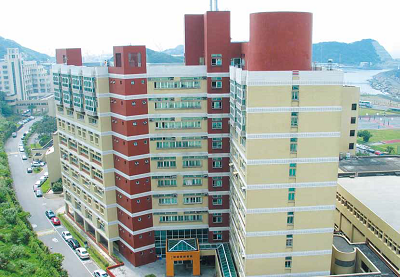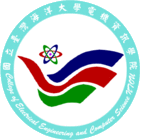 The Department of Communications, Navigation and Control Engineering was established in 2000 due to the need for professionals for communications and navigation as well as the lack of departments for cultivating relevant talents. At present, it provides BS degree and MS degree, including an Industrial R&D Master Program.
The Department of Communications, Navigation and Control Engineering was established in 2000 due to the need for professionals for communications and navigation as well as the lack of departments for cultivating relevant talents. At present, it provides BS degree and MS degree, including an Industrial R&D Master Program.
Goal
The department aims to foster professionals for communications, navigation, and control technology and equip them with capability for system design and R&D, engineering integration, and application software development.
Development
The research and development fields of the department include:
- Wireless communications; mobile broadband information systems; smart antenna; radar and satellite image signal processing; information and coding; wireless positioning; geographic information system
- global satellite navigation systems; inertial navigation; avionic systems and integration; intelligent transportation systems
- Control systems; intelligent systems and mechatronics, vehicle manipulation and control; human-machine interface integration
Curriculum Features
The basic courses are intensified, so that students will have a sufficient theoretical foundation. The curriculum committee of the department also regularly evaluates and modifies the core curriculums to meet the need of communication, navigation, and avionic industries and the trends of technological evolution. In this department, there are three compulsory training courses, respectively Electronic Communications, Navigation, and Control, to provide students both theories and practical experience. The Five-year Consistent Program of the department also provides the students in relevant departments in the university a short cut to directly advance to higher study and obtain a Master degree. The postgraduate study includes three groups, namely Communications and Signal Processing, Electronic Navigation and Positioning, and Control. The department has cooperated with industries, governmental organizations, and academies for a long time to execute various scientific projects and then applies the research results to teaching and research. Currently, the department offers BS and MS degrees and will apply for the establishment of a PhD program.
All the plans and purchases of the faculty, curriculums, and hardware and software in the laboratories, in the department are based on this. The development of the department focuses on inertial navigation systems, global navigation satellite system (GNSS), CNS/ATM (communications, navigation, and surveillance/air traffic management), mobile communications, intelligent transportation systems, radiolocation, smart antennas, vehicle control and manipulation, and geographic information systems.
Among the undergraduate courses, there are four compulsory training courses, namely Electronic Circuit Training, Communications Training, Navigation Training, and Control Training, to provide students experience in which theories and practice verify each other. In addition to general courses, there are following professional courses for students to select in order to enhance their actual strength for future employment or further study:
- Personal Mobile Communications; Mobile Broadband Information Systems; Smart Antennas; Digital Signal Processing; Radar and Satellite Image Signal Processing; High-frequency Circuit Design; Information and Coding; Wireless Positioning; Geographic Information Systems.
- Satellite Navigation; Inertial Navigation; Integrated Navigation; Aeronautics and Astronautics; Intelligent Transportation Systems.
- Control Systems; Intelligent Systems; Mechatronics; Vehicle Manipulation and Control; Human-machine Interface Integration; Embedded Systems.
Undergraduate:
Flexibly applying the knowledge of mathematics, science, and engineering
Designing and executing experiments; analyzing and interpreting data
Implementing technology, techniques, and tools necessary in engineering practice
Designing engineering systems, components, or manufacturing processes
Effectively communicating and cooperating with teams
Discovering, analyzing, and dealing with problems
Knowing current issues, understanding the influence of engineering technology on the environment, the society, and the world, and fostering continual learning
Understanding professional ethics and social responsibility
Postgraduate:
Professional knowledge of information, communications, navigation or control
Planning and conducting thematic research
Writing and publishing professional theses
Innovating thinking as well as discovering and solving problems
Communication, negotiation, and teamwork
Global vision and technological foresight
Leadership, management, and planning
Knowing modern issues, understanding the influence of electrical, information, and engineering technology on the environment, ecology, humanity, the society, and the world, and cultivating life-long, self-learning and growth.
Understanding engineering ethics and having the sense of responsibility
Faculty
| Professor & Chairman | Juang, Jih-Gau | Ph.D., Electrical Engineering, University of Missouri, U.S.A. | Control Theory, Intelligent Systems, Vehicle Control, Robotics |
| Professor | Jwo, Dah-Jing | Ph.D., Aerospace Engineering, University of Texas, U.S.A. | Navigation and Positioning Systems, Flight Dynamics and Control, Filtering Theory and Applications, Aeronautics and Astronautics |
| Professor | Tzeng, Ching-Yaw | Ph.D., Mechanical Engineering, Rice University, U.S.A. | Ship Maneuvering, Ship Motion Control |
| Associate Professor | An, John | Ph.D., Electrical Engineering, the University of Liverpool, UK | Digital Communication Systems, Smart Antenna and Signal Detection, Mobile Communication Engineering |
| Associate Professor | Chang, Shwu-Jing | Ph.D., Electronics Engineering, National Chiao-Tung University | Communication Monitoring, Satellite Positioning and Navigation, Electronic Chart, GIS, Solid-state Component Design Simulation, Mobile Positioning, Mobile Information |
| Associate Professor | Cheng, Cheng-Fa | Ph.D., Electronics Engineering, National Chiao-Tung University | Embedded System, Nonlinear Systems, Digital Control, Microprocessor and Applications, System Modeling, Optimal Control |
| Associate Professor | Chang, Lena | Ph.D., Electrical Engineering, National Taiwan University | Array Signal Processing, Underwater Signal Processing, Adaptive Signal Processing, Satellite Image Processing |
| Associate Professor | Wang, He-Sheng | Ph. D. in Electrical Engineering, National Taiwan University | Robust Control, Global Positioning System, Navigation and Positioning, Software-based Receiver, Differential Geometry, Geometric Control, Aeronautics and Astronautics |
| Assistant Professor | Wu, Jia-Chyi | Ph.D., Electrical Engineering, Rutgers University, U.S.A. | Digital and Wireless Communications, Coding and Information theory, Image and Video Signal Transmission Systems |
| Assistant Professor | Li, Chi-Min | Ph.D., Communication Engineering, National Taiwan University | Wireless Communications, Spread Spectrum Communications, Smart Antenna, Digital Signal Processing |
| Assistant Professor | Lin, Shiou-Gwo | Ph.D., Atmospheric Physics, National Central University | Global Positioning System, Geographic Information System, Image Processing, Programming |
| Assistant Professor | Chen, Chih-Jung | Ph.D., Communication Engineering, National Taiwan University | Millimeter Wave and Microwave System, RF Integrated Circuit Design |
Teaching Resources
The laboratories and hardware and software resources in the department were planned and set up according to the education goals of the department. They include various research instruments for related fields, 12 research laboratories for teachers, and 1 research center. Using the instruments, the teachers guided postgraduates and undergraduates to conduct diversified thematic investigations and obtained fruitful results. The research center and laboratories include:
4 Teaching Laboratories (including 1 computer classroom)
Navigation and Control Teaching Laboratory; Communication and Electronic Teaching Laboratory; Intelligent Telemetric Services Laboratory; Computer Classroom
12 Research Laboratories
Systems Engineering and Integration Laboratory; Ship Maneuvering and Control Laboratory; Wireless Communication Laboratory; Intelligent Control Laboratory; Mobile Information Laboratory; Satellite Navigation and Digital System Laboratory; Mechatronic Laboratory; Satellite Navigation Systems Laboratory; Digital Communications and Signal Transmission Laboratory; Wireless Broadband System Laboratory; Precise Satellite Positioning and Navigation System Design Laboratory; Microwave and Electromagnetic Technology Laboratory
Research Center for Electronic Charts
Electronic Charts are not only the basis for electronic navigation and sea management but also the core platform for integrating diverse dynamic or static information on sea waters. The Research Center for Electronic Charts started the development from the research on Marine GIS and ECDIS. These years, the research center successfully accomplished numerous research projects and planned or established a lot of national-level application systems and services, including the Electronic Chart Service for Taiwan Sea Waters, the DGPS, the Ocean and Offshore Vessel Monitoring System, the Coast Guard Satellite Ship Control System, and the Automatic Ship Identification and Traffic Information System. The objective of the center lies in facilitating the research and development of electronic navigation, intelligent maritime systems, and sea management information technology by electronic charts and latest navigation communication and information technology.
>>Department of Communications, Navigation and Control Engineering
